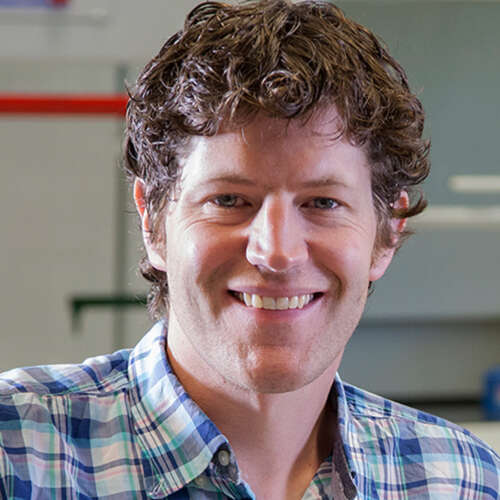Water quality researcher and engineer Dr. David McCarthy has been announced as the new Canada Excellence Research Chair (CERC) in Waterborne Pathogens: Surveillance, Prediction and Mitigation at the University of Guelph, supported by $8 million in federal funding over eight years.

McCarthy brings his expertise in mitigating the risks of waterborne pathogens with tools and technologies to U of G where he will join the School of Environmental Sciences within the Ontario Agricultural College.
McCarthy’s CERC initiative aims to develop novel devices, technologies and guidelines to ensure the safety of water in Canada and around the globe.
CERC awards are among the most prestigious and generous available globally. They award universities funding to attract world-renowned researchers and support their teams to establish ambitious research programs at Canadian universities.
“This is the first time the University of Guelph has hosted this prestigious research chair,” said Dr. Charlotte Yates, president and vice-chancellor. “I am very excited to warmly welcome Dr. David McCarthy to the University. U of G is a leader in One Health research, and Dr. McCarthy’s work will further advance our capacity and leadership in this collaborative, multidisciplinary field.”
Dr. Rene Van Acker, vice-president (research) said, “With U of G’s roots in agriculture and veterinary medicine and our strengths in life and environmental sciences, our researchers have always appreciated how the health of humans, animals and their shared environments are bound together in what we now call One Health.”
“It’s terrific to have Dr. McCarthy come to us with a program of research that exemplifies this approach and that will provide such benefits for communities globally.”
Managing the risks of waterborne disease
“Contaminated water and poor sanitation transmit disease and expose individuals to preventable health risks,” said McCarthy. “Population growth, development and climate change are only intensifying the challenges of managing waterborne risks.”
To address these challenges, McCarthy and his team aim to understand how pathogens from human and animal waste move through urban water cycles, how they interact with humans and how to reduce the health risks they pose.
They will develop novel technologies to detect pathogens and their sources in near real-time, design a lab-on-a-chip device that enables pathogen detection in the field, model how humans interact with sources of contamination and reduce pathogen loads in the environment.
Their work will emphasize solutions that are easy to use, low cost, open source and open hardware, to encourage and enable their use in all parts of the globe.
One Health approach for a complex challenge
McCarthy said he was drawn to U of G by work being done in many areas of research relevant to waterborne diseases, including studies of pathogens, sensor development, and microbial transmission in environmental systems such as water and soil as well as support for interdisciplinary research through the One Health Institute and the Global Centre of Excellence in Biomonitoring, Biosurveillance and Biosecurity.
The multi-faceted problem of waterborne disease needs understanding, identifying, controlling and treating the pathogens. This requires a team with varied areas of expertise and points of view, he added.
McCarthy will lead a multidisciplinary team of researchers from the College of Engineering and Physical Sciences (CEPS), the Ontario Agricultural College (OAC) and the Ontario Veterinary College (OVC).
“Receiving such significant support over an eight-year period enables my team to develop technologies, tools and guidelines that people around the globe, people from many walks of life, can use to reduce the risks of waterborne pathogens,” said McCarthy. “Ultimately, I hope we can save lives and ensure safe, accessible water for generations to come.”
McCarthy’s research team includes Dr. Aichen Chang, Department of Chemistry, CEPS; Dr. Kari Dunfield, School of Environmental Sciences (SES), OAC; Dr. Amy Greer, Population Medicine, OVC; Dr. Lawrence Goodridge, Department of Food Science, OAC; Dr. Marc Habash, SES, OAC; Dr. Huiyan Li, School of Engineering, CEPS; Dr. Edward McBean, School of Engineering, CEPS; Dr. Heather Murphy, Department of Pathobiology, OVC; and Dr. Nicole Ricker, Department of Pathoiology, OVC.
Contact:
Media Relations
media@uoguelph.ca
